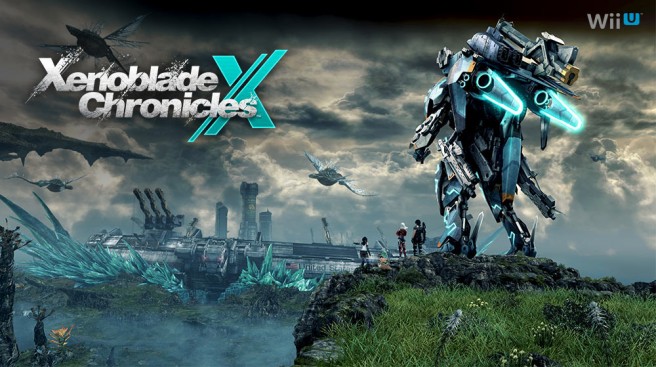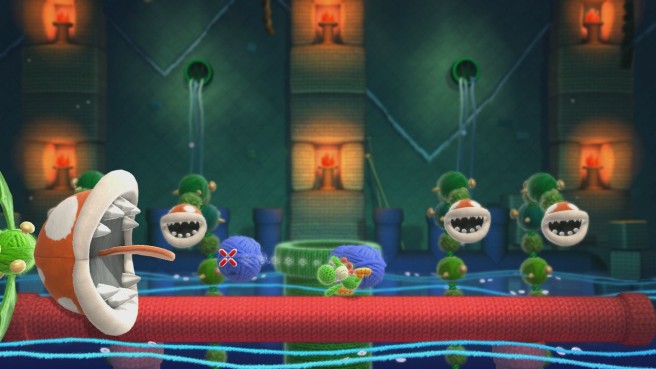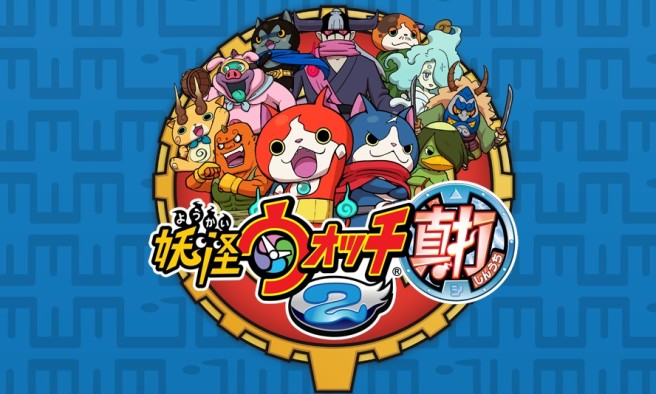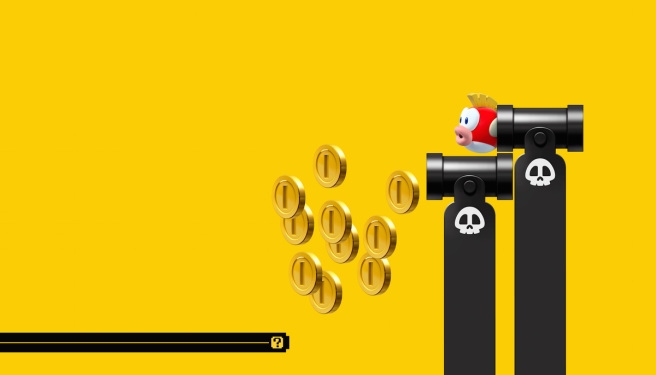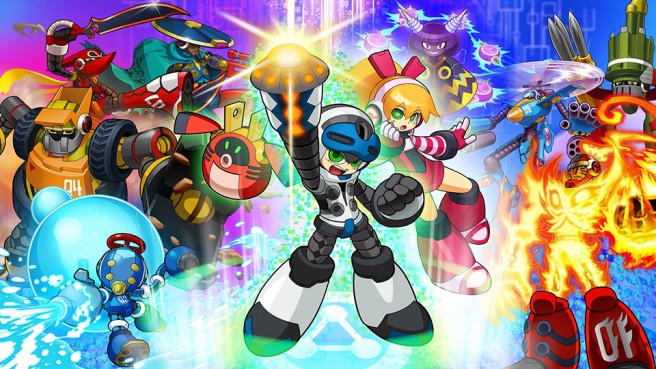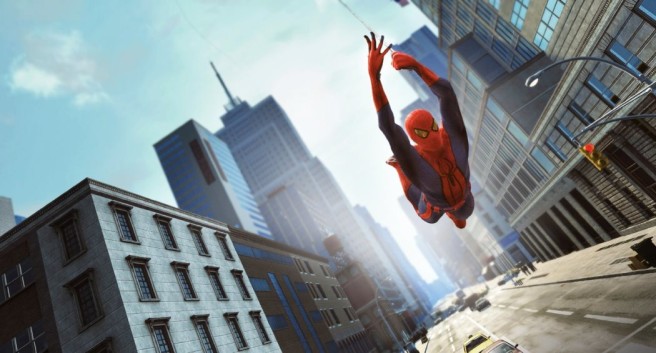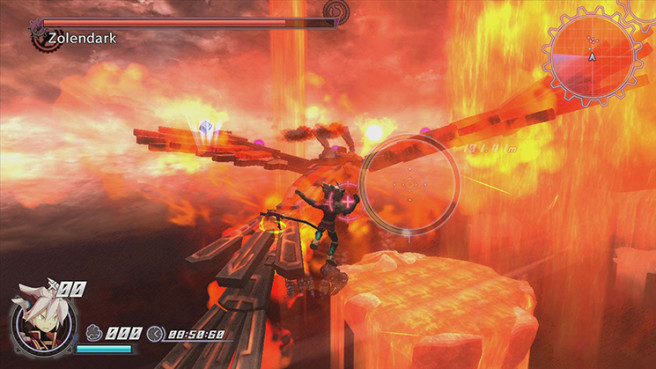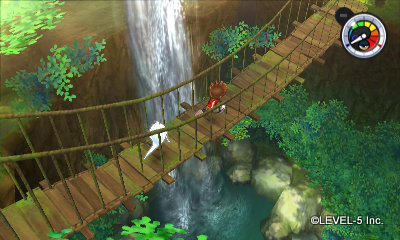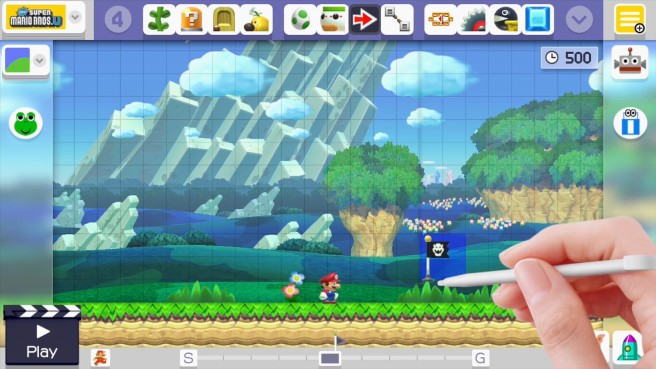Nintendo UK on Xenoblade X’s audience and marketing, pleased with Xenoblade 3D’s performance
Posted on 9 years ago by Brian(@NE_Brian) in New Nintendo 3DS, News, Wii U | 131 Comments
Nintendo has one more big Wii U game due out in the west this year: Xenoblade Chronicles X. The massive RPG will be released towards the very beginning of next month.
Speaking with MCV, Nintendo UK product manager Gemma Hall sounded off on who Xenoblade Chronicles X is intended for, and how the company will go about marketing the title:
“Xenoblade Chronicles X will speak to anyone who loves epic RPGs, as it has everything you could want from a big sweeping sci-fi adventure, with rich diverse landscapes, deep customization options, a unique battling system, and a host of memorable characters. We are therefore not only targeting it towards fans of the original Xenoblade Chronicles, but to broader JRPG fans looking for their next epic RPG adventure. The game is visually sumptuous and will demand the attention of genre fans.
We will be focusing activity initially around Xenoblade Chronicles fans, and then broadening out to wider RPG fans with a tightly targeted digital campaign. Due to the highly visual nature of this game, we are concentrating on video formats that show off the many stunning facets of the title, including the huge open world, giant alien monsters, and the awesome Skell transformations.
We have a wealth of Wii U games that will be part of our Christmas campaign, including Splatoon and Super Mario Maker. However, Xenoblade Chronicles X is a more serious RPG offering, with stunning graphics and sweeping sci-fi story, and so we expect this to open up the Wii U to the more hardcore RPG audience who won’t want to miss out on this future genre classic.”
Yoshi’s Woolly World devs on the different Yoshi designs and Pokemon, lack of Baby Mario, more
Posted on 9 years ago by Brian(@NE_Brian) in News, Wii U | 75 Comments
Game Informer has published a new interview with Yoshi’s Woolly World designer Emi Watanabe and producer Takashi Tezuka. During the discussion, the two touched on the different Yoshi designs (and how the Pokemon amiibo unlock a generic skin), the lack of Baby Mario in the game, and more.
Read on below for some excerpts from the interview. You can read the full Q&A here.
More: Emi Watanabe, Good Feel, interview, Takashi Tezuka, top
Level-5 on the Yo-kai Watch comparisons to Pokemon, sequel’s western launch should be sooner
Posted on 9 years ago by Brian(@NE_Brian) in 3DS, News | 19 Comments
Ever since the original unveiling of Yo-kai Watch, the series has drawn comparisons to Pokemon. Those comparisons are more prevalent than ever now that the franchise is starting to make its way overseas. Level-5 CEO Akihiro Hino is fine with this, but feels “there are lots of differences” that set the two apart.
Speaking with GamesBeat, Hino said:
“We don’t really mind the comparison with Pokémon, but there are lots of differences. Yo-Kai Watch doesn’t take place in a fantasy world. The setting is like a real town in Japan, something closer to the user’s own life. It’s very relatable for kids. It’s something they can connect to their own life. We did localize it well, though, to make sure that kind of element carries through to the American version.
Another key point is that this isn’t just for kids, though. It’s for the whole family. We have elements that appeal to mothers and fathers as well, not just their kids. The franchise contains humor that can appeal to both kids and adults.”
Hino also spoke briefly about the localization of the next Yo-kai Watch game. When asked if it’ll take just as long to get Yo-kai Watch 2 in the west, he let out a chuckle and said, “It shouldn’t take that long.”
More: Akihiro Hino, interview, Level-5, Yo-kai Watch, Yo-Kai Watch 2
Super Mario Maker staff on development, worldwide appeal, costumes, updates
Posted on 9 years ago by Brian(@NE_Brian) in News, Wii U | 2 Comments
Polygon has put up a new Super Mario Maker piece, which contains some comments from producer Takashi Tezuka and senior director Yoshikazu Yamashita. The two spoke about the game’s development process, wanting the game to appeal to all players worldwide, costumes, and updates.
We’ve rounded up the information after the break. We also encourage you to check out Polygon’s full article here.
Keiji Inafune open to using amiibo in his games
Posted on 9 years ago by Brian(@NE_Brian) in General Nintendo, News | 10 Comments
amiibo have started to become more of an option for third-parties as of late. Shovel Knight is getting its own figure, and indie games are beginning to use the variety of figures that Nintendo has already brought out in their projects.
Going forward, amiibo support is something that Keiji Inafune may choose to take advantage of with his games. He told USGamer the following when asked about expanding in that direction for his Nintendo fans:
“That’s definitely an option for us, and if we have the opportunity to do it, then we’ll definitely take the chance. And also, we know for a fact a lot of our backers are Nintendo fans, because we ran a platform survey [for Mighty No. 9], and we see how many people are choosing Nintendo hardware. So it’s definitely something we have to look into.”
At this point, it might be too late to integrate amiibo support into Mighty No. 9. But maybe we could see the functionality in a sequel, spinoff, or whatever’s coming next from Inafune.
More: Comcept, interview, Inti Creates, Keiji Inafune
Beenox no longer working on Spider-Man games
Posted on 9 years ago by Brian(@NE_Brian) in General Nintendo, News | 7 Comments
Beenox worked on Spider-Man games for several years. The studio created Shattered Dimensions, Edge of Time, and both games for The Amazing Spider-Man in the span of five years. Despite Beenox’s involvement with Spider-Man since 2010, the company has now moved on.
Develop reports in its latest issue that Beenox is “no longer working on the Spider-Man IP”. That makes sense, as their output has been limited to Skylanders over the past few years. This year specifically, Beenox was in charge of Skylanders SuperChargers Racing for 3DS and Wii.
Beenox creative director Thomas Wilson told Develop about the studio’s transition:
More: Activision, Beenox, interview, Spider-Man, Thomas Wilson
Yuji Naka wants to make Ivy the Kiwi? and Rodea: The Sky Soldier sequels
Posted on 9 years ago by Brian(@NE_Brian) in 3DS, DS, News, Wii, Wii U | 4 Comments
Yuji Naka has created a few titles at Prope, including Ivy the Kiwi? and Rodea: The Sky Soldier. Both have been standalone games, but that doesn’t mean Naka isn’t interested in making sequels – quite the opposite actually.
Speaking with Hardcore Gamer, Naka expressed interest in returning to Ivy the Kiwi? if given the opportunity. The same also goes for Rodea. At the same time, he’s also thinking about completely new ideas.
Naka said:
“Ivy the Kiwi and Rodea are two titles that have a special part in my heart, so I would love to try creating sequels if I am given the opportunity. I constantly have ideas for new titles. Though I cannot say them here, please look forward to the day I can show them to the public.”
Naka further expressed interest in revisiting Rodea when asked if he’d like to see a comic series based on the game:
“If I am given the opportunity, I would love to have Rodea as a comic book series. I also personally want to see more of Rodea’s adventures.”
Level-5 CEO on why Yo-kai Watch has been a big hit in Japan, series’ origins
Posted on 9 years ago by Brian(@NE_Brian) in 3DS, News | 21 Comments
Yo-kai Watch has been a phenomenal success in Japan. The games and merchandise have sold incredibly well, and the series even has its own anime.
Why has Yo-kai Watch become such a hit in Japan? That question is something Level-5 CEO Akihiro Hino tackled in an interview with Game Informer. He told the site:
“The reason behind the success of Yo-kai Watch, not only as the game title but as the entire franchise, I would say is the strong link between the different pieces of our franchise, centered around what we call Yo-kai Medals [which] contributed a lot. Kids in Japan ran to the store after seeing the Yo-kai Medals used in the TV series, which can not only be enjoyed as collectible toys, but are also interactive with the video game, the arcade game, and can be utilized in many more ways.”
Hino also commented on how Yo-kai Watch’s concept came about. Regarding this, he said:
“I wanted create an IP that is universal and long-lasting, while providing something new and highly relatable to kids today. Yo-kai are spooky beings which often appear in Japanese folklore, mostly related to either humans or objects we were once attached to. Though they are somewhat monster-like, I realized they had never been featured in video games. From there, I started thinking about some of the main characters, and the concept of Jibanyan – a pretty cat Yo-kai who got hit by a truck – came into my mind. In order to write a story which can be relatable to kids, we conducted robust kids research to understand them. We tried hard to capture what they are most concerned about – it was interesting to find concerns which I can relate to my childhood days, and the ones which were unique to kids today. Setting-wise, it was natural to have it take place in real world. Springdale is an ordinary town with characters who use modern devices and live normal lives, just as we all are now – which is why it is so relatable to today’s kids.”
More: Akihiro Hino, interview, Yo-kai Watch
Mario Maker devs on the new update, checkpoints came from user feedback, possibility of other “Maker” projects
Posted on 9 years ago by Brian(@NE_Brian) in News, Wii U | 15 Comments
USGamer recently caught up with Super Mario Maker producer Takashi Tezuka and co-directors Yosuke Oshino and Yoshikazu Yamashita. Much of the discussion focused on the game’s brand new update. Topics include how the checkpoint system came about, whether or not we’ll see other updates in the future, and the possibility of extending the “Maker” idea to other series/concepts.
Head past the break for a roundup of these interview excerpts. You can also read up on the full talk here.
Fatal Frame devs on GamePad usage and cut ideas, Ayane inclusion, free chapters in the west
Posted on 9 years ago by Brian(@NE_Brian) in News, Wii U | 11 Comments
Siliconera recently caught up with a pair of developers behind Fatal Frame: Maiden of Black Water. The site spoke with Nintendo co-producer Toru Osawa as well as Makoto Shibata. A few interesting topics came up during the discussion. The two creators commented on the idea behind using the GamePad as the Camera Obscura and cut ideas, where Ayane’s inclusion came from, and the decision to make the first two chapters free in the west.
You can find these excerpts from the interview below. Read the full discussion over on Siliconera.
